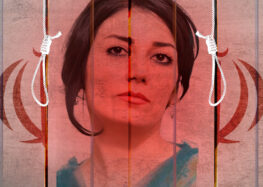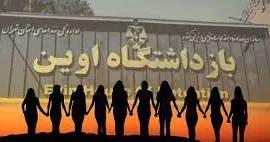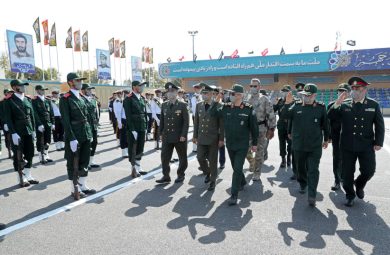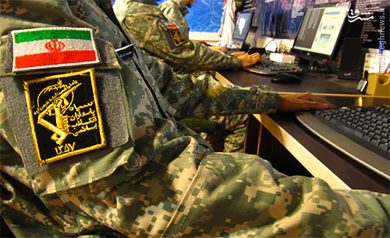In the face of state repression, gender-based violence, and systemic inequality, Iranian women have emerged as symbols of defiance and dignity. Their courage—on the streets, in prisons, and through digital activism—has inspired global admiration. But beyond admiration lies a growing force of international solidarity: activists, governments, organizations, artists, and everyday citizens around the world who are amplifying the voices of Iranian women and empowering their movement for freedom.
This analysis explores:
• The impact of international support on Iran’s women-led resistance.
• The role of diaspora communities, human rights organizations, and foreign governments.
• How global campaigns, sanctions, and media attention pressure the regime.
• What more can be done to ensure Iranian women have the backing they deserve.
1. Iranian Women: At the Frontline of Resistance
A. The Rise of the Women, Life, Freedom Movement
The tragic death of Mahsa Jina Amini in 2022 sparked an uprising that resonated far beyond Iran’s borders. Women across the country protested against:
• Mandatory hijab laws
• Gender discrimination
• Decades of IRGC oppression
They tore off their hijabs in public, marched in the streets, documented abuses online, and declared: “Woman, Life, Freedom” (Zan, Zendegi, Azadi).
Their resistance became more than a domestic movement—it became a global cry for justice.
2. Global Reactions: From Sympathy to Solidarity
A. Global Protests and Grassroots Movements
Within days of Mahsa Amini’s death, rallies erupted worldwide. Cities like London, Paris, Berlin, New York, Sydney, and Toronto saw:
• Massive demonstrations led by diaspora communities
• Public figures like Nazanin Boniadi and Masih Alinejad galvanizing support
• Feminist groups, universities, and labor unions endorsing the protests
These protests did more than express outrage—they helped keep Iran on the global agenda, holding media and policymakers accountable.
B. Media Coverage and Narrative Shift
For decades, Iranian women’s oppression was viewed as a cultural issue. But the 2022–2023 uprisings shifted that narrative.
• Major outlets like CNN, BBC, Al Jazeera, Deutsche Welle, and The Guardian prioritized the women-led movement.
• Iranian women’s voices appeared in op-eds, documentaries, and podcasts.
• Visual icons, such as women cutting their hair in protest, were broadcast worldwide, sparking solidarity actions from France to India.
This narrative shift deconstructed stereotypes and presented Iranian women not as victims—but as leaders of change.
3. Role of the Iranian Diaspora
A. Advocacy and Lobbying
The Iranian diaspora, especially in the U.S., Europe, and Canada, plays a critical role in:
• Lobbying governments for IRGC designation
• Organizing rallies and pressuring media outlets
• Providing platforms for Iranian women to speak at international forums
For example:
• The #MahsaAmini campaign was largely coordinated from abroad.
• Diaspora-led groups helped push the European Parliament to vote in favor of designating the IRGC as a terrorist organization.
B. Amplifying Digital Activism
Due to internet restrictions in Iran, the diaspora:
• Mirrors content from inside Iran to global audiences
• Runs secure channels to smuggle videos, testimonies, and documents
• Supports campaigns like #WomanLifeFreedom and #StopIRGC with translation and global outreach
They are a vital lifeline, connecting Iranian voices to international ears.
4. International Organizations and NGO Support
A. Amnesty International and Human Rights Watch
These groups have:
• Published reports documenting IRGC and state violence against women
• Tracked arbitrary arrests, torture, and prison conditions
• Called for the release of political prisoners, including women like Narges Mohammadi and Nasrin Sotoudeh
Their work legitimizes Iranian activists’ claims and pressures foreign governments to act.
B. UN and Global Institutions
• The UN Women’s Rights Council expelled Iran from its seat in 2022.
• Several UN Special Rapporteurs have condemned Iran’s abuse of women’s rights.
• Global legal campaigns are building cases to hold Iranian officials accountable for gender apartheid.
5. Artists, Celebrities, and Cultural Allies
A. Cultural Campaigns Go Viral
• Angelina Jolie, Shirin Neshat, and Dua Lipa have spoken in support of Iranian women.
• Celebrities posted images cutting their hair in solidarity.
• Films, visual art, and music dedicated to Mahsa Amini and the movement reached millions.
B. Why Cultural Influence Matters
In authoritarian regimes, cultural storytelling is resistance. Global artists play a role in:
• Amplifying Iranian voices
• Drawing youth audiences
• Making resistance relatable and accessible
6. Governmental Actions and Policy Support
A. Sanctions and IRGC Designation
Some governments have:
• Sanctioned IRGC officials responsible for abuses
• Imposed visa bans and asset freezes
• Debated designating the IRGC as a terrorist group (as the U.S. already has)
These actions signal international condemnation and disrupt the IRGC’s global reach.
B. Asylum and Safe Haven for Activists
Countries like Germany, Norway, and the Netherlands have:
• Offered asylum to persecuted Iranian women
• Allowed refugee journalists to continue their reporting
• Funded legal aid and trauma support for survivors of prison and torture
7. Challenges to Global Empowerment
Despite powerful gestures, Iranian women still face:
• Inconsistent global policies (e.g., EU hesitation to list IRGC as terrorist group)
• Media fatigue and shifting attention
• Surveillance and threats abroad, as the IRGC targets exiled activists
To make international support truly effective, it must be:
• Coordinated, not symbolic
• Sustained, not temporary
• Centered on Iranian women’s leadership, not just international politics
8. What More Can Be Done
Governments Should:
• Officially designate the IRGC as a terrorist organization
• Expand sanctions against human rights violators
• Offer digital protection and asylum to activists
Media and Tech Platforms Should:
• Prioritize Iranian women’s stories
• Combat disinformation spread by regime-backed accounts
• Support secure access tools like VPNs and encrypted messaging
Citizens Can:
• Share, repost, and amplify women’s voices
• Join local campaigns and write to representatives
• Donate to verified human rights organizations
Conclusion: From Solidarity to Liberation
Iranian women have become the face of a freedom movement that challenges not just a regime—but an entire system of patriarchal repression. Their voices are clear: they want freedom, dignity, and equality.
But no movement exists in isolation. International voices, when united, empower local struggles, hold regimes accountable, and bring hope where fear once ruled.
Join Our Newsletter!
Stay informed with the latest updates, news, and ways to take action in the fight for justice and global security. Sign up now to get updates delivered straight to your inbox!





